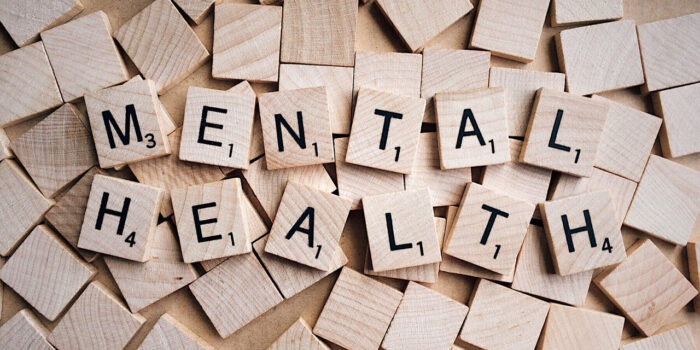The journey to overcoming addiction can be daunting, with a landscape riddled with challenges. One of the most prevalent obstacles you may encounter is the existence of co-occurring disorders. Your dual diagnosis, or co-occurring disorder, consists of two interwoven problems: addiction and a mental health disorder. It’s a thorny situation, one that requires a sophisticated, empathetic approach.
The evidence is clear, addiction is a brain disease. There are observable structural and functioning changes that occur to the brain once addicted and these can take 1 to 2 years to return to baseline. Without co-occurring disorder / dual diagnosis treatment, outcomes are poor for both the addiction and the mental health disorder. The appropriate treatment environment will have to provide evidence-based treatments and address both issues concurrently.
It’s of paramount importance that the addiction is the primary focus. That’s why all the world’s leading addiction authorities describe addiction as a primary illness. It’s in first place, like primary school before secondary/high school.
Undoubtedly, the most significant step towards addressing co-occurring disorders is realizing that they are interconnected. Your addiction and mental health disorder feed off each other in a vicious cycle. Your mental health issue may lead you to self-medicate, escalating the addiction, while the addiction can exacerbate the mental health disorder. Thus, treatment that targets only one problem might leave you vulnerable to a relapse, as the untreated disorder can reignite the other.
Comprehensive treatment will take into account your unique needs and experiences. This will inform the treatment approach, recognizing that you are an individual and not just a case of addiction. You have a unique backstory, distinct triggers, and different responses to treatment modalities. This humanistic approach empowers you and emphasizes your agency in overcoming addiction.
With Co-occurring Disorders, Integrated Treatment is Vital
The best addiction rehab centre in Johannesburg offers such programs that address both your addiction and mental health disorder concurrently. It isn’t a one-size-fits-all method but a personalized approach that takes into consideration your particular situation, preferences, and resilience.
By using cognitive-behavioural techniques, therapists can help you unlearn the maladaptive behaviours associated with addiction while teaching you new, healthier ways to cope. Trauma-informed addiction care is another critical component, especially if your addiction stems from unresolved traumatic experiences.

Peer Support Groups
Peer support groups can also be an invaluable part of your recovery journey. In these groups, you can connect with others who understand your struggles on a deeply personal level. You can learn from their experiences, gain insights, and develop a strong support network. Remember, you don’t have to face this battle alone.
This patient, compassionate approach recognizes that recovery is a journey that takes time and not a destination to be reached overnight. Here are some facts about depression in South Africa that you may not be aware of.
Addressing co-occurring disorders during addiction treatment necessitates a comprehensive, individualized, and empathetic approach.
The path to recovery can seem long and arduous, but professional help is invaluable. Qualified therapists and addiction treatment centres in Johannesburg are equipped with the tools, strategies, and knowledge to guide you through this process. With their support, and your own strength and resilience, you can get addiction help, manage your mental health, and move towards a healthier, happier future. Don’t hesitate to seek help. Your recovery journey starts today.
Advantages of Navigating the Pathway of Addiction Treatment With Co-occurring Disorders
Navigating the pathway of addiction treatment with co-occurring disorders in Johannesburg comes with a unique set of advantages and disadvantages. It’s essential to be aware of these to make informed decisions about your recovery journey.
- One of the primary benefits is the integrated treatment approach that addresses both your addiction and mental health disorder concurrently. By treating both conditions simultaneously, you can more effectively break the cycle of dependency and dysfunction that one condition may perpetuate in the other.
- Another pro of this approach is its individualized nature. In Johannesburg, professionals understand that you’re more than your addiction. They respect your unique backstory, triggers, and responses, tailoring the treatment to your specific needs and preferences.
- Using CBT, MET & DBT (cognitive-behavioural, motivational enhancement & Dialectical behaviour therapies) techniques, addiction therapists in Johannesburg can help you reduce maladaptive behaviours associated with addiction while teaching you new, healthier ways to cope. This skill-building process is a crucial asset in your journey towards recovery and beyond.
- Rather than expecting an immediate and complete recovery, you progress at your own pace without the pressure of meeting unrealistic expectations.

Challenges Addressing Co-Occurring Disorders
- Integrated treatment demands a high level of expertise from the treating professionals. If your care team is not adequately equipped or trained to handle co-occurring disorders, the treatment may not yield the desired results.
- Another potential con is the complexity of treating co-occurring disorders. Unravelling the intricate ties between your mental health disorder and addiction can be a long and taxing process. It requires time, patience, and a lot of emotional work. Long-term inpatient treatment may be needed.
- Similarly, the individualized approach, while beneficial, can also be a drawback. It demands active participation and commitment from you, which can feel overwhelming, especially in the early stages of recovery. If you’re not ready or able to engage fully in the treatment process, the effectiveness of the program may be compromised.
- Stigma is a significant obstacle. Despite increasing awareness about mental health and addiction, stigma still exists, and it can create additional hurdles for you on your recovery journey. It can impact your self-esteem, strain your relationships, and even act as a barrier to seeking help.
Remember, knowledge is power. Being aware of these pros and cons empowers you to be an active participant in your treatment and recovery process. It’s your journey, and you have the power to steer it in the direction that best serves your healing and growth.
Contrasting Topics of Addressing Co-occurring Disorders
| Addressing Co-occurring Disorders In Addiction Treatment In Johannesburg | Contrasting Topic | |
|---|---|---|
| 1. | You are treated for both addiction and mental health disorder concurrently, addressing the complexities of each disorder and how they interrelate. | Single Disorder Treatment: In this approach, you receive treatment for either the addiction or the mental health disorder, not both. The focus is on tackling one problem at a time. |
| 2. | The treatment program is tailored to your unique needs, triggers, and responses, taking into account your specific circumstances and resilience. | One-size-fits-all Approach: Here, you are placed in a standardized treatment program, irrespective of your personal backstory, triggers, and coping mechanisms. |
| 3. | Cognitive-behavioural techniques are used to help you unlearn maladaptive behaviours associated with addiction, replacing them with healthier coping strategies. | Psychoanalytical Treatment: This method concentrates on uncovering and addressing your unconscious mind and past experiences, with less emphasis on changing current maladaptive behaviours. |
| 4. | The stigma surrounding co-occurring disorders can be a significant obstacle in your recovery journey, impacting your self-esteem and potentially acting as a barrier to seeking help. | Stigma-free Environment: In a contrasting scenario, you are in a supportive environment with no or minimal stigma attached to addiction or mental health issues. This setting fosters open conversation, understanding, and acceptance. |
As we wrap up our journey of exploring the ins and outs of treating co-occurring disorders and addiction in Johannesburg, let’s take a moment to reflect on how this all applies to your therapy and recovery context.
By now, you’re aware that dealing with both an addiction and a mental health disorder is not a walk in the park. But remember, understanding the interconnectivity between the two is crucial in your therapy and addiction recovery journey. It’s not about tackling one problem and then moving to the next. It’s about treating both, together, because they are deeply intertwined.
This addiction treatment rehab in Johannesburg treatment approach is tailored just for you. It appreciates your unique backstory, your triggers, your responses and your resilience. You’re not just another patient, you’re a unique individual, and that’s the strength of this therapy model.
Cognitive-behavioural techniques are at the heart of your therapy, helping you unlearn old habits and form new, healthier ones. Plus, it’s not about going cold turkey. Their team of addiction professionals will prescribe detox meds and therapies to promote gradual and sustainable change.
Sure, it’s a challenging road, especially given the stigma and barriers to entry that still hangs heavy around addiction and mental health disorders. But that’s where the beauty of the therapy and recovery community in Johannesburg shines. They understand. They are here to walk with you every step of the way.
Let’s remember the words of the renowned psychiatrist Carl Jung: “I am not what happened to me, I am what I choose to become.” Remember, you are not your addiction. You are not your mental health disorder and you are not your addiction. You may not have been responsible for how and why you developed these problems, but you are responsible for your recovery! Keep walking this road to recovery, because the journey matters just as much as the destination. Take care!


